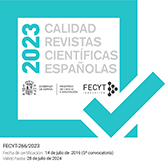A review of the status and conservation problems of the Meloidae (Coleoptera) in Comunidad de Madrid
DOI:
https://doi.org/10.3989/graellsia.2006.v62.iExtra.123Keywords:
Coleoptera, Meloidae, Faunistics, Conservation, Madrid, SpainAbstract
Data gathered from publications, entomological collections and field observations along the last eight years, provide information about the presence of 40 especies of the family Meloidae in Comunidad de Madrid. Seven species are only known from collections made more than 25 years ago, while two species have been found only during recent field surveys (Meloe rugosus and Nemognatha chrysomelina). Two out of the seven species without recent records (Stenoria apicalis and Meloe baudueri) are represented in Madrid by one or two specimens, so that their current presence in the region may have been overlooked. This is not the case of the other five (Meloe variegatus, M. cavensis, M. violaceus, Mylabris uhagonii and M. amorii), which are represented by numerous specimens in the historical collections. Meloe variegatus, M. cavensis and Mylabris uhagonii, must be considered at risk of extinction, but if new specimens are not found in the near future they should be treated as definitively extinct. Mylabris amorii has been found in only one locality at the northernmost edge of its known distribution range, and the evaluation of its status depends on new information. Meloe violaceus has suffered and evident decline and therefore should be treated as Vulnerable. Five additional species suffered evident reductions of their distribution ranges in Madrid (Meloe brevicollis, M. autumnalis, M. proscarabaeus, Hycleus dufourii and Mylabris dejeani). Most of the recent records for those species are restricted to mountain areas, while the lowland populations seem to have been disappeared and consequently, these species should be listed as Vulnerable. If the current tendency continues they will be transferred to the Extinction Risk level. Meloe tuccius, a frequently found species 10 to 15 years ago in the urban area of Madrid can be considerered today as nearly extinct in the area, and therefore should be treated as Vulnerable in the Region. Increasing urban development, masive use of agrochemical products in roadside works, agricultural fields, golf courses, and gardens, and aeroplane treatment of pests, represent serious current threats for the populations of meloid beetles in Madrid.
Downloads
Download data is not yet available.
Downloads
Published
2006-05-08
How to Cite
1.
García-París M, Trotta-Moreu N, Capote L. A review of the status and conservation problems of the Meloidae (Coleoptera) in Comunidad de Madrid. Graellsia [Internet]. 2006May8 [cited 2024May18];62(Extra):333-70. Available from: https://graellsia.revistas.csic.es/index.php/graellsia/article/view/123
Issue
Section
Research Articles
License
Copyright (c) 2006 Consejo Superior de Investigaciones Científicas (CSIC)

This work is licensed under a Creative Commons Attribution 4.0 International License.
© CSIC. Manuscripts published in both the printed and online versions of this Journal are the property of Consejo Superior de Investigaciones Científicas, and quoting this source is a requirement for any partial or full reproduction.All contents of this electronic edition, except where otherwise noted, are distributed under a “Creative Commons Attribution 4.0 International” (CC BY 4.0) License. You may read here the basic information and the legal text of the license. The indication of the CC BY 4.0 License must be expressly stated in this way when necessary.
Self-archiving in repositories, personal webpages or similar, of any version other than the published by the Editor, is not allowed.













